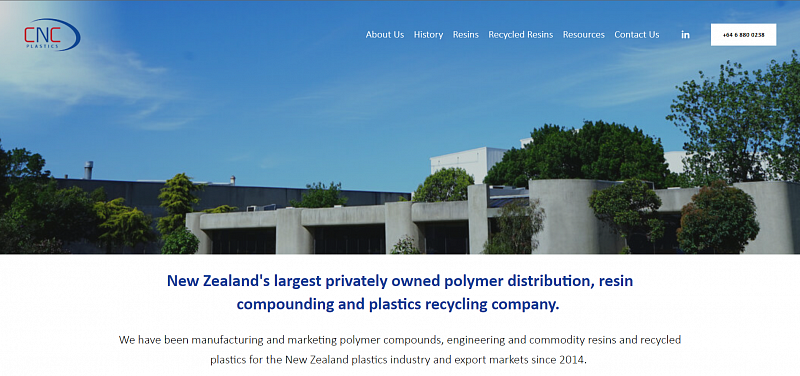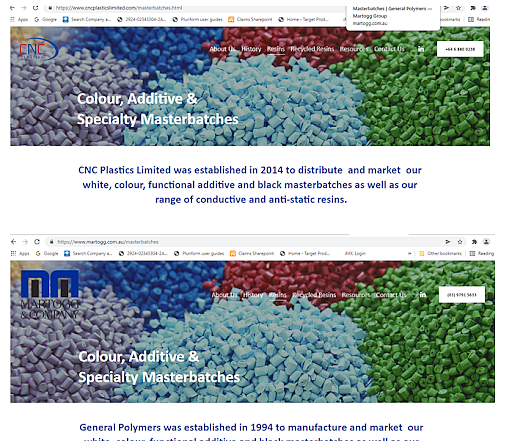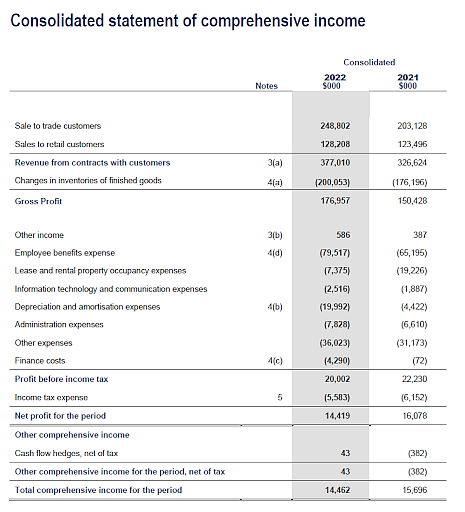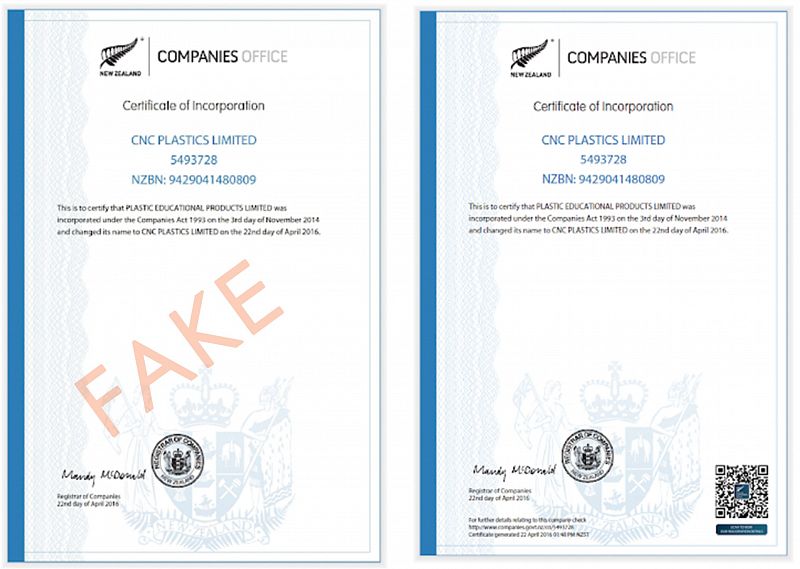February
2024
Death by a million cuts
Don't be fooled - "Scams will increase and become more and more sophisticated." Interview with Martin Čánik, CEO & OWNER of BOGUMA s.r.o.

In recent times, we have witnessed a significant increase in the number of scams not only in our industry, which are becoming increasingly sophisticated and difficult to detect in today's digital age. Internet fraudsters constantly innovate their methods, and procedures, and strike at our credibility and weaknesses. The world of scams is becoming an endless creative space into which many companies, including the most secure ones, can easily step into. In this article, we will look at our recent specific experience with scammers who pretended to be a New Zealand company, CNC PLASTICS LIMITED. In an interview with BOGUMA CEO, Martin Čánik, we will delve into our experience, find out how the scam unfolded, and gain valuable lessons and recommendations on how to protect ourselves against similar scams in the future.
Erika (social media specialist at BOGUMA s.r.o.): Today you've decided to share with our readers one of our recent experiences with a scam. Could you tell us exactly what happened?
Martin Čánik (CEO at BOGUMA s.r.o.): Certainly, we would like to warn other companies against a similar incident to what we recently experienced. We became the target of a scam that not only targeted our company but had a global nature.
Question 1: When did all this begin?
Martin: The scam (at that time, we didn't know it was a scam) began to unfold at the end of November when the "customer" first contacted us in the form of an inquiry. A group of scammers posed as representatives of the New Zealand company, CNC PLASTIC LIMITED, and came up with an inquiry that is standard in our industry.

Credibly looking website of CNC Plastics Limited; source: https://www.cncplasticslimited.com/index.html
Question 2: How exactly was this scam supposed to work?
Martin: The scammers were exceptionally well-prepared; the business story was put together very precisely, and many points fit together. The introduction to the business case was entirely standard; we exchanged price quotes by phone and email, discussed details and product specifications in relation to its use and overall volume. Even the increase in volumes at that time was significant, as several suppliers were experiencing capacity issues during this period. Discount discussions, delivery schedule discussions, etc., were also part of the normal course of business. Regarding payment terms, they insisted on a 45-day B/L (Incoterms 2020 - bill of lading), which is not uncommon in these types of transactions. We agreed on the condition that receivables would be insured throughout the contract, and the production area would be covered by a commercial contract, including penalties for non-delivery upon order confirmation. We also requested documents directly from the company in the form of financial statements, company registry, owner signature samples, etc. We decided to proceed with the deal only after verifying the company through a major multinational insurer, which assured us of the smooth operation of this client. Communication over the business contract was followed by signing, and we also signed an insurance policy to secure receivables with the insurer. They presented themselves professionally during the business case, creating the impression that they had large contracts in Africa and even had a branch there, which, for a company with a turnover of 300 million (in New Zealand dollars), was still not suspicious to us. The entire communication, conducted by phone and email, was very professionally handled (except for one incident). The scammers had perfect knowledge not only of our environment (which was evidenced by the change in the thickness of the originally agreed product) but also of the English language and business conduct of the business case. It was not a layman in this field, and we also do not think it was the work of one person pretending to be an employee of a real company. The real problem would have arisen for us if we had sent the product to the "client" without being paid for it. That was their plan; to get the requested products for free. I don't know if they planned to resell them subsequently or use them for a real project, but I'm glad we won't find out.
Question 3: What damage could this scam have caused you?
"Without our stable corporate and financial position, we could have found ourselves in a situation where we would have had to spend significant resources on defense and damage repair, and this entire case would have meant approximately half a million in losses for us."
Martin: Fortunately, we detected the scam in time and did not incur any significant financial losses. However, we had already started producing the product, and a portion of it remains in stock until we sell it. In the event that someone is interested in a larger quantity of 3mm black rubber sheeting 7993, they can contact us. We basically came out unscathed, but without our stable corporate position, we could have found ourselves in a situation where we would have had to spend significant resources on defense and damage repair, and this entire case would have meant approximately half a million in losses for us.

comparison of the fake (up) and real (down) CNC PLASTICS LIMITED website; source: https://www.martogg.com.au/ & www.cncplasticslimited.com
Question 4: How long did you communicate with them before realizing it was a scam?
Martin: Our communication with them lasted about a month and a half (and essentially continues to this day). However, the first suspicions arose during the Christmas period. The initial signal that something was wrong came from our colleague, who jokingly mentioned an email from the scammers (mentioned above), then our potential future partners, when the scammer (regarding shipping) communicated very jovially with her, and she said that this is exactly how a scammer would communicate with us. Later, an employee from the insurance company also helped us; the whole situation did not seem entirely right to her. She had a case where the company was communicating with a person pretending to be an employee of the company (and the goods were supposed to end up in Africa) and was able to deceive the supplier in this way - in such a case, insurance coverage would not apply. So, I must give credit to female intuition, which certainly helped us significantly in uncovering this scam. After doubts began to accumulate, we had all the documents provided by the scammers rechecked. The insurance company also rechecked the company, and based on this check, it was found that the company (probably a real one-person company) was entirely created for the purpose of fraudulent activities to obtain products. Of course, the level of sophistication and the high level of forgery, and the creation of false identity surprised not only us but also the insurance company. This is evidenced, for example, by the fact that when evaluating a client to whom insurance claims are to be made, the insurance company checks the company through several official national registries. This group was able to forge documents on these registries in such a way that no one noticed it during the initial check, or it's just an assumption, they had their person inside who was able to enter these documents there. Subsequently, there was falsification of the website, and fraudulently issued documents. Even our embassy in Australia confirmed to us that it is a one-person company with a basic capital of 100 dollars, and its headquarters are currently for sale.
Statement from the business department: "Initially, the business proceeded like any other, so there was no initial suspicion from my side. However, things went too smoothly, and we agreed on many details relatively quickly."

A look at the company's falsified financial statements audited by a Big Four audit firm; source: private archive
Question 5: Why do you think they decided to target BOGUMA specifically?
Martin: A very good question. I think we became a target because we are active in marketing and SEO development, which makes us more visible in the market. This can, of course, bring us more business opportunities, but it also makes us more vulnerable to similar scams. Overall, I perceive an increase in similar attempts in our industry, and scammers are becoming increasingly sophisticated. Therefore, it is often difficult from the first contact to determine who is a legitimate entrepreneur with good business intentions. In this case, however, there were several companies involved at one time. I think they really intended to build something in Africa, but somehow they either wouldn't pay or would subsequently sell it. Since there is not much willingness to deal with the matter in our environment (we contacted the relevant authorities and police forces), and since it was not a complete scam, we want to inform you about this fact as soon as possible. The insurance company conducts its own investigation primarily aimed at finding out how the forged documents could appear on the registries, but that's about it. At this point, the scammers still don't know that we know about them, even though we informed them that the insurance company has stopped the limits for this business case, discussions are underway to change the payment terms, none of which will, of course, happen.
Question 6: Have you ever experienced a similar situation in the past?
Martin: Fortunately, no. However, we, unfortunately, witnessed how one of our potential clients was deceived by a scammer pretending to be one of our colleagues. So we were on the opposite side, but we couldn't help the client in any way, although the whole situation saddened us greatly.

In the left part, is the edited output from the register delivered when signing the contract, in the right, the original, looking at which you will find that the owner of the company has a Gmail account and a phone that cannot be reached; source: private archive
Question 7: What do you recommend to other companies to avoid similar scams?
Martin: It is important for companies to be cautious and careful when entering into new business partnerships. We recommend verifying the credibility of potential partners and continuously monitoring transactions and communication. We always try to agree on a personal meeting. We gladly invite new partners to visit our company, where we can also show them the entire production process so that they can be sure of the quality of our products. This was also one of the problems that ultimately convicted them. They didn't want to meet us in person because supposedly they had a lot going on these days, and they planned to schedule a meeting with us only after the first order was completed.
Erika: Thank you for sharing this experience with our readers. We hope that by raising awareness, we can help other companies avoid similar scams.
Martin: It is really important to be aware of the risks associated with scams and to know how to protect ourselves from them to protect not only our financial resources but also the trust and integrity of our companies. The goal is not to become distrustful business partners but cautious ones.
This interview provided us with a deep insight into how companies can become victims of scammers and what steps need to be taken to protect against similar scams. It is essential to be aware of the risks and know how to protect against scams to protect not only our financial resources but also the trust and integrity of our companies. The goal is not to become distrustful business partners but cautious ones.
Check out some of our other blog posts and start a conversation with us on LinkedIn.

 Behind the Scenes of Production: Unveiling the Secrets of Rubber Compounds with BOGUMA s.r.o.
Behind the Scenes of Production: Unveiling the Secrets of Rubber Compounds with BOGUMA s.r.o.
 BOGU(M)MA on Collaboration with MMA Fighter Vlasto Čepo - Supporting Sports Remains Our Priority
BOGU(M)MA on Collaboration with MMA Fighter Vlasto Čepo - Supporting Sports Remains Our Priority
